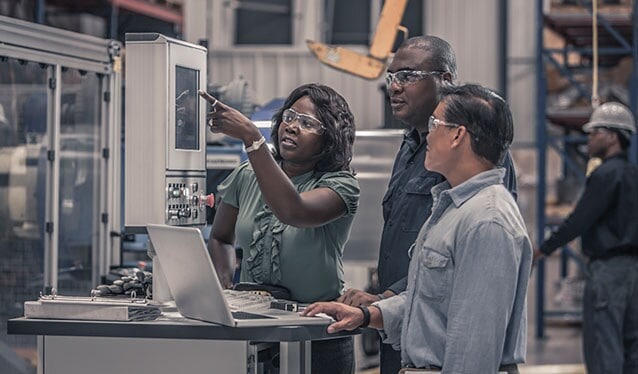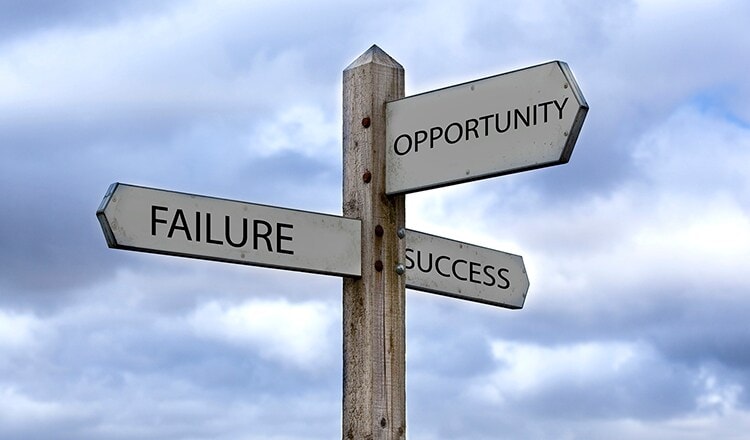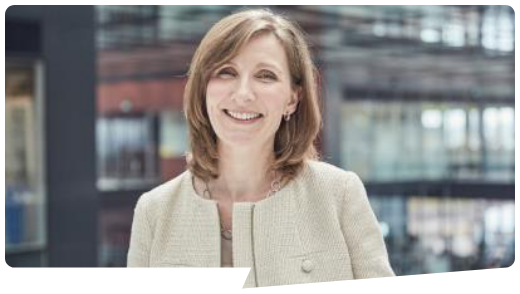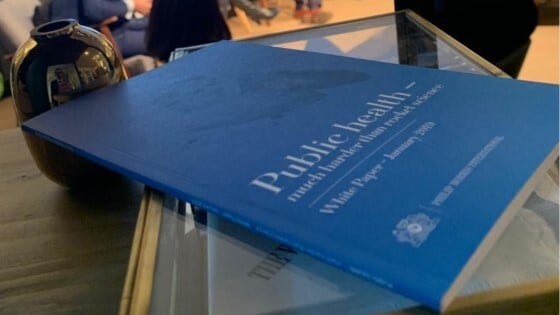How do you balance resilience and innovation?
Jacek Olczak, CEO, of Philip Morris International speaks in a room.
Our mission is clear: to reduce smoking by replacing cigarettes with less harmful alternatives.
The cigarettes belong in museums.
Since 2016, my company has fully committed to moving away from cigarettes, the most harmful form of nicotine consumption. We have invested more than 10.5 billion U.S. dollars in developing and commercializing smoke-free products—which today account for nearly 35 percent of our total net revenues.
Frustratingly, our ability to make further progress is being blocked by those who are blindly guided by a desire to see an end to the industry rather than an end to cigarettes and this is very frustrating.
This, together with an overreliance on the so-called precautionary principle—which some interpret as “better not to do anything until we know everything”—results in government inaction and more of the same.
Today’s environment and rhetoric make it easier for governments and regulators to do nothing on smoke-free alternatives. It’s perceived as safer for political careers to abstain from the debate completely rather than be seen as siding with us.
But, in the end, this is just prolonging the life of cigarettes and risks shortening the lives of those who use them.
For smokers today, inaction is not a neutral position. It is a choice with real-world outcomes.
We are entering what Churchill called “a period of consequences.”
It is no longer a case of if these smoke-free alternatives are better than cigarette smoking;
it is a case of by how much they are better.
Watch the full speech on our YouTube channel.
Rethink Disruption: The impact of inaction
Philip Morris International logo is seen on screen.
What forces are reshaping your industry?
Jacek Olczak, CEO, of Philip Morris International speaks in a room.
Our mission is clear: to reduce smoking by replacing cigarettes with less harmful alternatives.
The cigarettes belong in museums.
Since 2016, my company has fully committed to moving away from cigarettes, the most harmful form of nicotine consumption. We have invested more than 10.5 billion U.S. dollars in developing and commercializing smoke-free products—which today account for nearly 35 percent of our total net revenues.
Frustratingly, our ability to make further progress is being blocked by those who are blindly guided by a desire to see an end to the industry rather than an end to cigarettes and this is very frustrating.
This, together with an overreliance on the so-called precautionary principle—which some interpret as “better not to do anything until we know everything”—results in government inaction and more of the same.
Today’s environment and rhetoric make it easier for governments and regulators to do nothing on smoke-free alternatives. It’s perceived as safer for political careers to abstain from the debate completely rather than be seen as siding with us.
But, in the end, this is just prolonging the life of cigarettes and risks shortening the lives of those who use them.
For smokers today, inaction is not a neutral position. It is a choice with real-world outcomes.
We are entering what Churchill called “a period of consequences.”
It is no longer a case of if these smoke-free alternatives are better than cigarette smoking;
it is a case of by how much they are better.
Watch the full speech on our YouTube channel.
Rethink Disruption: The impact of inaction
Philip Morris International logo is seen on screen.
What economic story isn't getting enough attention?
Jacek Olczak, CEO, of Philip Morris International speaks in a room.
Our mission is clear: to reduce smoking by replacing cigarettes with less harmful alternatives.
The cigarettes belong in museums.
Since 2016, my company has fully committed to moving away from cigarettes, the most harmful form of nicotine consumption. We have invested more than 10.5 billion U.S. dollars in developing and commercializing smoke-free products—which today account for nearly 35 percent of our total net revenues.
Frustratingly, our ability to make further progress is being blocked by those who are blindly guided by a desire to see an end to the industry rather than an end to cigarettes and this is very frustrating.
This, together with an overreliance on the so-called precautionary principle—which some interpret as “better not to do anything until we know everything”—results in government inaction and more of the same.
Today’s environment and rhetoric make it easier for governments and regulators to do nothing on smoke-free alternatives. It’s perceived as safer for political careers to abstain from the debate completely rather than be seen as siding with us.
But, in the end, this is just prolonging the life of cigarettes and risks shortening the lives of those who use them.
For smokers today, inaction is not a neutral position. It is a choice with real-world outcomes.
We are entering what Churchill called “a period of consequences.”
It is no longer a case of if these smoke-free alternatives are better than cigarette smoking;
it is a case of by how much they are better.
Watch the full speech on our YouTube channel.
Rethink Disruption: The impact of inaction
Philip Morris International logo is seen on screen.
Unlocking innovation through people: PMI’s growth-oriented culture
Leaders of changeFollowing the 2016 announcement of our ambition to become a smoke-free company, Philip Morris International has undergone significant growth and cultural shifts to unlock the potential of our people and organization.
4 min readRead more
Choosing the right business strategy to deliver growth, impact, and progress
3 min readPhilip Morris International’s Chief Strategy Officer, Waynn Wu, discusses her career journey to date, the leadership learnings that have benefited her most, and how evolving technologies like AI present exciting new opportunities for business growth.
Unleashing innovation through the transformative power of cross-generational collaboration
4 min readBy harnessing the diverse perspectives, skills, mindsets, and experiences of employees across different age groups, we can unlock new opportunities, foster agility, and deliver progress for our businesses and for society.
Inaction has consequences
Jacek Olczak, CEO, of Philip Morris International speaks in a room.
Our mission is clear: to reduce smoking by replacing cigarettes with less harmful alternatives.
The cigarettes belong in museums.
Since 2016, my company has fully committed to moving away from cigarettes, the most harmful form of nicotine consumption. We have invested more than 10.5 billion U.S. dollars in developing and commercializing smoke-free products—which today account for nearly 35 percent of our total net revenues.
Frustratingly, our ability to make further progress is being blocked by those who are blindly guided by a desire to see an end to the industry rather than an end to cigarettes and this is very frustrating.
This, together with an overreliance on the so-called precautionary principle—which some interpret as “better not to do anything until we know everything”—results in government inaction and more of the same.
Today’s environment and rhetoric make it easier for governments and regulators to do nothing on smoke-free alternatives. It’s perceived as safer for political careers to abstain from the debate completely rather than be seen as siding with us.
But, in the end, this is just prolonging the life of cigarettes and risks shortening the lives of those who use them.
For smokers today, inaction is not a neutral position. It is a choice with real-world outcomes.
We are entering what Churchill called “a period of consequences.”
It is no longer a case of if these smoke-free alternatives are better than cigarette smoking;
it is a case of by how much they are better.
Watch the full speech on our YouTube channel.
Rethink Disruption: The impact of inaction
Philip Morris International logo is seen on screen.
Inaction has consequences
Philip Morris International’s CEO Jacek Olczak delivered a speech about the current state of smoking rates and what actions can be taken.
Leading for impact, with Waynn and Shea Lih
Waynn Wu and Shea Lih Goh share key ingredients for effective leadership, drawn from professional journeys that are very different, and yet similar in so many ways.
Leading For Impact, with Waynn and Shea Lih
Music starts.
Waynn Wu, Chief Strategy Officer, PMI, speaks:
Are you ready?
Shea Lih Goh, President, Philip Morris Japan, replied:
Yes.
I was genuinely surprised, encouraged by the response to the article
and the conversation that it has sparked.
Waynn speaks:
When you said yes to it,
I was literally, like, jumping up and down
and thinking the fact that, yes, you know, finally,
I find the perfect person to be able to do it.
So to start, thank you, thank you and thank you.
Why did you decide to co-author an article with me?
Shea speaks:
If I were to be really honest, I was very hesitant
because co-authoring an article or even doing
an article is totally something new to me.
But I guess it was your infectious enthusiasm,
that really inspired me to say,
why not take this challenge, right?
Waynn speaks:
I've always wanted to do something meaningful with you.
Building business together is meaningful enough,
I have to say, but meaningful in a way that that touches people
to actually have the opportunity to work on,
principles of growth and principles of, professionalism.
And that is something I've always wanted
to do for a long, long time.
I finally find a perfect person to do it with so, thank you.
Shea said:
Leadership is still some slight inherent trait,
but I've come to realize over the years
is actually a evolution of journey,
which is shaped by experiences and self-reflection.
And it's also interesting because you shared with me
there were also some questions
from some of the readers about how do you get there?
Waynn said: Yeah.
Shea speaks:
So I would say that you know,
all the five principles are underlying theme,
but this is the thing that, I kind of wish somebody told me
maybe they did tell me, but without the experience
and, you know, the reflection,
you don't realize that it's actually a journey.
As the famous saying you unlearn, learn and re-learn.
I think I have learned that is so, so true,
but it is also extremely difficult
sometimes if you know you are not aware of this
or sometimes ego stops people, right.
So, I think this is a part that all of us will have to be very open to embrace.
Waynn speaks:
In order to be authentic, it is actually...
you beautifully describe around a journey.
It is not a moment in time to... it's not the
how to get there because as an individual
we all grow and as an individual we evolve over time.
People around us, personal, professional and even our
very own set of friends and family.
Everybody is growing older by the day,
nobody grows younger by the day anyway.
So, if you don't spend a disproportionate
amount of time understanding who you are,
it's almost impossible to know what who you want to become.
And then last but not least,
I will embrace and absolutely love myself.
And that, I think, is, my way of interpreting, authenticity.
Shea speaks: I knew that I like what you said, love yourself
because I think while we all want to be critical of sometimes of, you know,
what we do, who we are and all the mistakes,
but often, sometimes we can do to extremely become too harsh.
I think it's really important
that you also recognize the small steps and achieve when you make.
Waynn speaks:
Out of the five principles, do you have one in mind that, comes quite natural to you,
which almost like intuitive, I don't really have to work on it.
Shea speaks:
As a person, I'm inherently curious.
And I like to explore.
So, it lets me delve into new ideas,
see new perspective, compare what is out there, what is better.
So, it's very much me as a person.
So, I found it and probably the one that, you know, it comes naturally.
But it is also the driving force for me to stay,
you know, like updated in what is happening out there.
So I would say is, stay curious.
Waynn speaks:
I will have to pick, being different not just being the best.
Being different part is something that is very, very, natural to me.
There's a high price to pay to be the best.
But once you are the best, you very quickly also realize that you need to be,
intrinsically understanding what, sustainable competitive advantage
you have or you don't and be different.
And I would think that I had an
easier time now that I've grown in, my experience,
but when I first started out, when I was in my early 20s,
I have a harder time, because you tend to want to conform.
But now I'm just me, Shea Lih.
So, take it or leave it.
What would you say will be the one thing that,
'Wow, I have to work on it.'?
Shea speaks: Trying to embrace different perspective, different expectations,
cultural differences, you know, there's something
that again, it is not immediately natural.
And that takes a lot of hard work.
So number one, the active listening skills.
That's hard work.
Because listening is one thing, but active listening is another one.
It's about mastering the art of tailoring messages and adapting
communication styles to the different audience.
So, I think that part is a continuous work
and also because we know when is a team
member of 2 people, 5 people or 10 people
I found it so easy to motivate them
because we could say, let's all go
and celebrate everybody's birthday and let's all go
and have a karaoke, or let's go to have a dinner.
But then when it grows to 50, okay, that's totally different now.
And then when you go to 100, 500, 1000...
I learned the hard way that what I say said
that you know, the story and what ended the bottle.
Did I say that?
It definitely no.
But then how do you
then make sure this communication goes there?
It's like you have to manage ups,
you have to manage downwards and you have to manage across.
And then you have all the diversity of nationalities,
people with different backgrounds,
which makes it very challenging.
So on one hand is challenging, but it's also enjoyable.
Waynn speaks: And when I hear you speak about communicating,
I also have to be very honest, as you get a bit more senior,
you realize that, having key messages is one thing.
A really good storytelling is another.
We are not born to be able to do this like this.
The ability to storytell is absolutely, hugely trainable.
You have to spend a disproportionate
amount of time understanding who the audience are,
more importantly, what is it that they want to hear and why you?
You give the energy to the people,
the people will also give the energy to you.
And I think the communicating, style and the leadership style,
you just have to get comfortable with it,
and I think for me, it's a continuous journey and each time
I'm given the opportunity of a different platform,
I also find myself that I learn a lot more about myself.
Let's be also quite transparent.
The work that we're doing, we thought we were done
with the article, but very quickly
we realized that the engagement level is so high
that we kind of got curious around, like, how can we get the
how can we leverage the communication, engagement
and tools to bring this forward and have a more, you know, kind of bilateral communication
with people that found interest in the article.
Ourselves are curious and ourselves are learning
and last but not least, you know, here we are.
We're meeting the people exactly where they are.
What we can potentially be working on, I think also
depends on the feedback to this, because, it's not about us.
None of this is about us.
It's really about, the conversations,
or one-on-one conversations we had after the article
that brought us to do what we are doing now.
And I think, a rightful, tribute, to all this time and effort,
that everybody has spent on this is give us the feedback.
What would you, what would you like to know
if there's something we can work on, great.
We do that, but if it's not something
that we can work upon,
potentially we can pass it on
to some other friends and families
or even co-workers that could work upon
because I think that's what community building is about.
Shea speaks:
Hey. Oh, thank you so much.
Waynn speaks:
Thank you. Oh, it's a lot easier than I thought, No?
Music ends.
Businesspeople should think more like scientists, where failures present opportunities for solutions
Leaders of changeA life in science has taught me that knockbacks are a necessary step on the path to success, but only if we can remain curious about the causes.
3 min readRead more





























